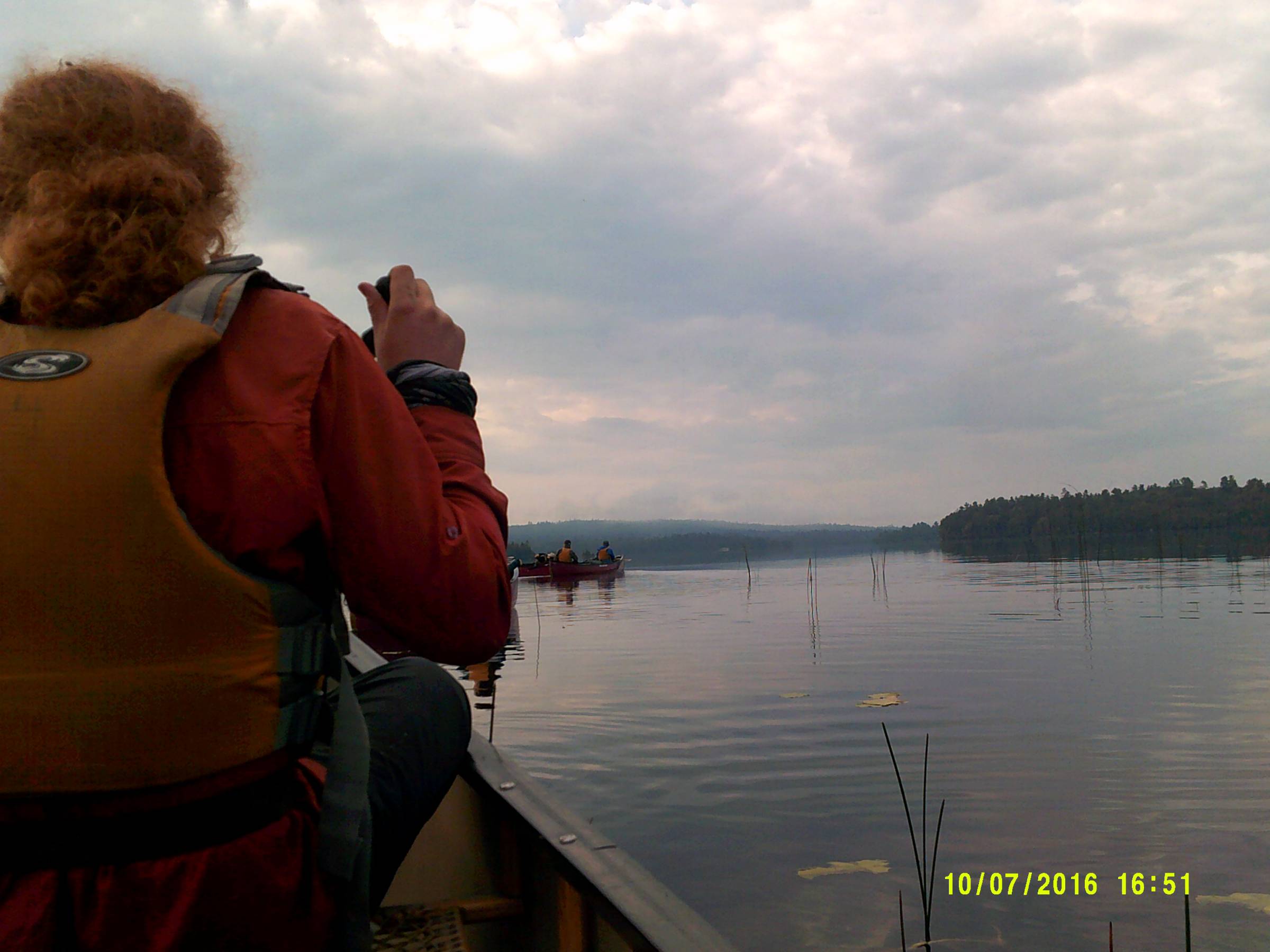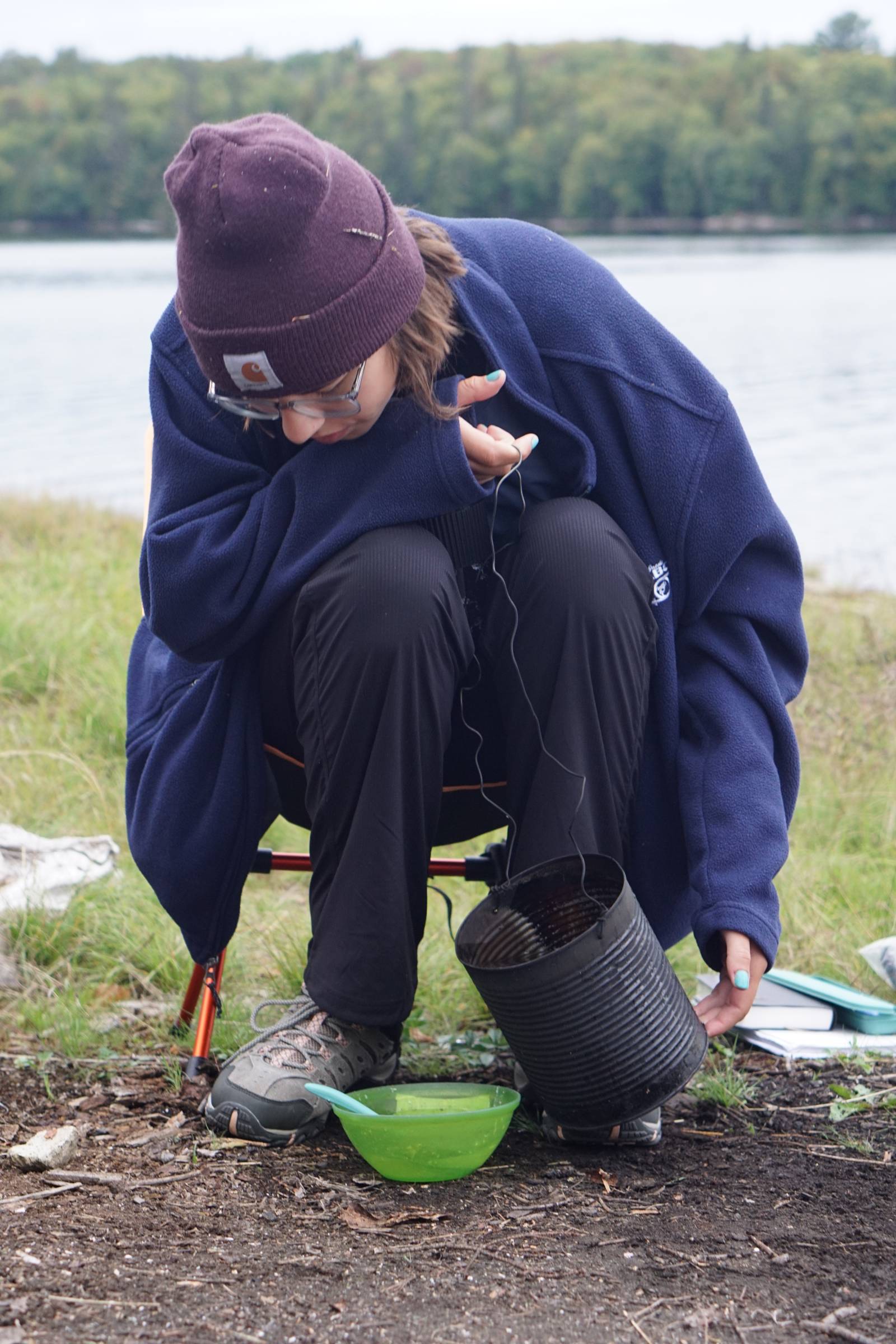Why do we go to the Wilderness? Part 1
Eager to hear student reflections on the Canoe Trip? Stay tuned – those are coming soon! First, enjoy Part 1 of this special 2-part blog post on why we go to the wilderness by staff member, David Schuurman.
I often find that Act Five’s wilderness trips are one of the most well known parts of the Act Five program, especially when I’m out doing recruitment work for Act Five at high schools, camps, conferences, or churches. This doesn’t surprise me seeing how the trips that we take our students on are seen as either ‘crazy’ or ‘crazy awesome’ by most people who hear about them.

Every year our Act Five students canoe and portage around the wilderness of Temagami for ten days in mid to late September. In late February our students build quinzhees and live in them for three or four days in the Muskoka wilderness. Lastly, our students finish the year off by backpacking on the Appalachian Trail in Virginia for five days in April.
It’s important to realize that Act Five (in partnership with Coldwater Canada) doesn’t organize these trips simply because they are ‘crazy’ or ‘crazy awesome’. There’s deeper purpose and intentionality behind why we venture out to the wilderness regularly.

Following the Example of Scripture
Firstly, when we observe the story of Scripture we see God’s people time and time again being led by the Spirit into the wilderness to be restored. The Israelites were led by God out of Egypt and into the wilderness for forty years. Elijah was led by God into the wilderness for a season. Abraham, Noah, Jonah, John the Baptist, and Jesus himself were all led by the Spirit into the wilderness for significant amounts of time. “Jesus, full of the Holy Spirit, returned from the Jordan and was led by the Spirit in the wilderness” (Luke 4:1 NRSV). It seems there is something significant that God wants to teach his people through regular times in wilderness. As a discipleship community we want to lead our students into the wilderness intentionally and regularly to see how the Spirit will meet us there together.
Human Economy vs. Natural Economy
Secondly, some of our thinking around wilderness trips have been shaped through Wendell Berry’s essay Getting Along with Nature. In this essay, Berry highlights that the regular, everyday lives of modern people in the west revolve around the ‘human economy’ of upward mobility. Our lives are seeped in a constant, invisible pull towards personal economic gain. When we go to the wilderness we find ourselves seeped in the ‘natural economy’ of downward mobility. In the wilderness the forest floor is literally dead plants that decompose to create soil. Such soil is rich, ready to sprout new life. When you pay attention in the wilderness you see many different forms of life working together in sacrifice and harmony. You see the gospel being lived out all around you.

Wendell Berry implores people to, rather than go to the wilderness to escape or retreat from the human economy, go to the wilderness to be restored, in the fullest sense of the word. In this, we can return to life with a vision to integrate the natural economy and the human one together harmoniously (Berry, Getting Along With Nature, 1982).
Learning to Love
Lastly, one of the courses that we offer at Act Five is ‘Place, Home, and Land’. In Brian Walsh and Steven Bouma-Prediger’s book, Beyond Homelessness, they say:
“We care for only what we love. We love only what we know. And, we truly know only what we experience. If we do not know our place-know it in more than a passing, cursory way, know it intimately and personally-then we are destined to use and abuse it.”
We desire to see our students become stewards who observe and serve the Earth. It’s hard to care for our places, our homes, and the land if we haven’t practiced paying attention to it. We ought to intentionally allow ourselves to be led there by the Spirit – to be restored.
So believe it or not, our trips to the wilderness exist for more reasons than to be ‘crazy’ or ‘crazy awesome’ experiences. Our hope is to see ourselves, our students, and our community restored, that we might be able to care for our homes, places, and the land more thoughtfully. We long for this to flow from our efforts to faithfully follow the Spirit’s leading into the wilderness, through the wilderness and back home from the wilderness.

Stay tuned for Part Two with reflections from this year’s canoe trip!